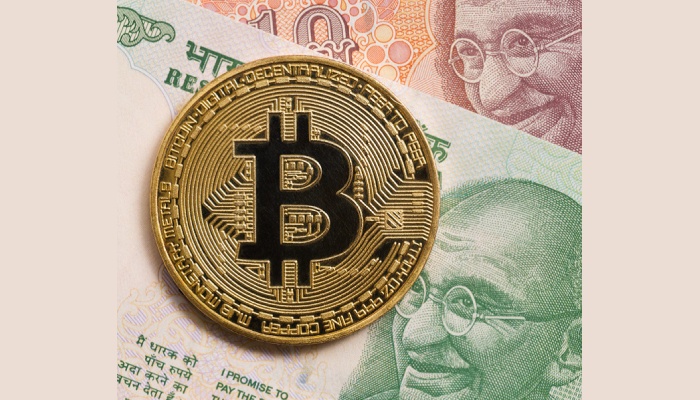
or

Cryptocurrencies, or virtual currencies, are digital means of exchange created and used by private individuals or groups. Because most cryptocurrencies aren’t regulated by national governments, they’re considered alternative currencies – mediums of financial exchange that exist outside the bounds of state monetary policy.
Bitcoin is the preeminent cryptocurrency and first to be used widely. However, hundreds of cryptocurrencies exist, and more spring into being every month.
Cryptocurrencies are very secure as they are secured by the cryptography codes and they are locked by using a public cryptographic system with every owner having their own private key.
There is no need for permission While using a cryptocurrency. This specific feature gives users a lot of freedom and they are able to use cryptocurrencies as they wish.
Cryptocurrency is Super-fast Another great feature of it is that they are superfast.
Cryptocurrencies are not location centric: The cryptocurrency works irrespective of the owner’s physical location. From a regulators point of view therefore forming rules for regulation becomes challenging.
Transactions in cryptocurrencies are irreversible: Once a confirmation is granted by the owner then the transaction becomes irreversible. In case of a misuse the currency cannot be recovered or reversed upon.
Real-world identities can be hidden: This is a regulator’s nightmare as the unaccounted money can be used for trading of cryptocurrency leaving no traces of the owner.
The entry of Bitcoin in 2013 marked the entry of cryptocurrency in India. However by the year-end of 2013 the authorities started warning the use of cryptocurrency which may incur risks and danger, but no official regulatory policy was introduced.
Then the whole India crypto industry walked in the three-year gold age, with crytocurrency exchanges and start-ups coming one after another; the coins and the technology introduced into more use cases in practical terms. The crytocurrency even became an alternative to Rupee to a smaller extent when the government announced to demonetize 80% of currency in circulation. However 2017 was a turning point for the development of the industry when severe regulations were imposed worldwide on crypto tradings owing to irregular fluctuation in terms of token value and trading volume as the trend went negative.
This RBI by 4 Press Releases cautioned the public at large about the potential dangers of dealing in crypto-currencies: –
Thereafter the RBI by way of Circular dated April 6, 2018, in exercise of the powers conferred by Section 35A read with Section 36(1)(a) and Section 56 of the Banking Regulation Act, 1949 and Section 45JA and 45L of the Reserve Bank of India Act, 1934 (hereinafter, “RBI Act, 1934”) and Section 10(2) read with Section 18 of the Payment and Settlement Systems Act, 2007, directing the entities regulated by RBI (i) not to deal in virtual currencies nor to provide services for facilitating any person or entity in dealing with or settling virtual currencies and (ii) to exit the relationship with such persons or entities, if they were already providing such services to them.
This Circular came to be challenged in Internet and Mobile Association of India (IMAI) v RBI, WP No. 528/2018, by the writ petitioners.
The Supreme Court by way of its Judgment dated 4.03.2020, held the following: –
In view of the above the Hon’ble Supreme Court Of India observed that when both RBI and government have taken a consistent stand not to ban VCs, then the impugned circular cannot be held to be proportional an is accordingly set aside.
Now as RBI notification stands quashed consequently the banks and financial institutions can provide their services to crypto-exchanges and other ventures dealing in cryptocurrencies. This will certainly make the Indian market more prospective for crypto-ventures.
However two perspectives remains in the subject; firstly during the period of ban the crypto-market has been decimated in India to an large extent and secondly the judgment seeks revival of the cryptocurrency ecosystem in India only theoretically and practicality remains to seen.
Therefore presently it is imperative to rebuild the conducive ecosystem for thriving cryptocurrency business in India within the proper regulatory framework as may be framed by RBI and Government Of India.
Tags: S. Jalan & Co.
Samrat Sengupta is a Partner with S. Jalan & Company, Delhi with experience in Commercial arbitration and Corporate litigation and has dealt with Infrastructure, Banking, Telecom and Real Estate laws.
Titash Mukherjee has eight years experience and is a Principal Associate with S. Jalan & Co. She has completed her post graduation in Business Law from the University of Calcutta and focuses primarily on insolvency, dispute resolution, real estate as well as general corporate advisory.

Lex Witness Bureau

Lex Witness Bureau

For over 10 years, since its inception in 2009 as a monthly, Lex Witness has become India’s most credible platform for the legal luminaries to opine, comment and share their views. more...
Connect Us:


The Grand Masters - A Corporate Counsel Legal Best Practices Summit Series
www.grandmasters.in | 8 Years & Counting
The Real Estate & Construction Legal Summit
www.rcls.in | 8 Years & Counting
The Information Technology Legal Summit
www.itlegalsummit.com | 8 Years & Counting
The Banking & Finance Legal Summit
www.bfls.in | 8 Years & Counting
The Media, Advertising and Entertainment Legal Summit
www.maels.in | 8 Years & Counting
The Pharma Legal & Compliance Summit
www.plcs.co.in | 8 Years & Counting
We at Lex Witness strategically assist firms in reaching out to the relevant audience sets through various knowledge sharing initiatives. Here are some more info decks for you to know us better.
Copyright © 2020 Lex Witness - India's 1st Magazine on Legal & Corporate Affairs Rights of Admission Reserved